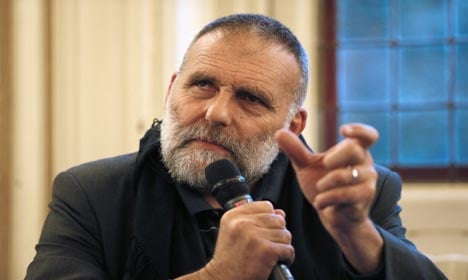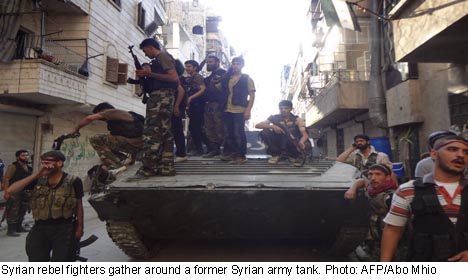The National Coalition said it "expresses its deep concern over the disappearance of Father Paolo (Dall'Oglio) over four days ago in Raqa and calls for the disclosure of any information that could help identify his location and ensure his safety."
"We urge all parties involved in the disappearance of Father Paolo to immediately come forward and release him," it added.
The opposition's statement comes a day after the Syrian Observatory for Human Rights raised fears that Dall'Oglio has been taken prisoner by jihadists in Raqa, Syria's only provincial capital to have fallen out of regime control.
Reports had earlier emerged that Dall'Oglio went on Monday to meet with commanders of the jihadist Islamic State of Iraq and the Levant (ISIS) to try to negotiate peace between Kurds and jihadists and to plea for the release of activists kidnapped by the group.
ISIS is behind the kidnapping of several activists in Raqa.
On Friday, the Britain-based Observatory said activists who demonstrated outside the jihadist group's headquarters were told by ISIS that Dall'Oglio was their "guest".
Long based in Syria, Dall'Oglio is a fierce critic of President Bashar al-Assad's regime and its crackdown against dissent.
Known for his charisma and good relations with peaceful activists, he has lobbied several Arab and Western officials to support the democratic opposition for fear of the rise of radical Islamism.
On July 27, the priest posted a message on his Facebook page expressing joy that he was visiting Raqa.
"I arrived today in Raqa and I was filled with joy for two reasons. First, because I am in Syrian territory and in a liberated city, and second because of the remarkable welcome that this beautiful city has given me," he wrote.
No new posts have been made on his account since.
In its statement, the Coalition described Dall'Oglio as "a wise man of peace and compassion (who) has worked hard to encourage unity and cooperation amongst all Syrians".
Activists in Raqa, meanwhile, launched an online campaign demanding Dall'Oglio's release, describing him as "the patron of peace".



 Please whitelist us to continue reading.
Please whitelist us to continue reading.
Member comments